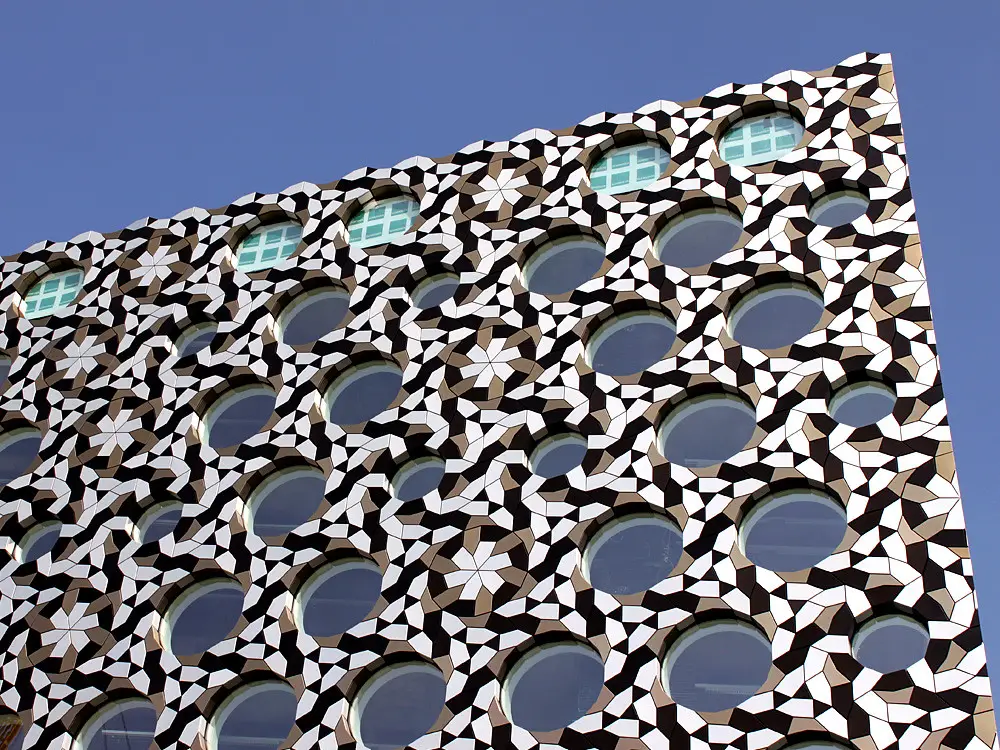I recently met up for a coffee with Bonnie Wong – an independent consultant who makes enterprises investment ready, with an equal interest in sustainable development. Sustainable developments and the role of communities in planning were just a few of the topics that emerged in conversation, an edited version of which follows.
Bonnie Wong: I work for private sector clients, and they have access to a lot of assets, they do stuff quickly and they’ve got their processes down. I’m trying to take a bit of that into the social enterprise, not-for-profit sector, trying to get them to move a bit more…
Joe Peach: Efficiently? There is a lot to be said for that, because these private sectors do that so well. They’ve refined their working methods almost to perfection, and that level of organisation between divisions could be utilised well in start-up social enterprises.
BW: I do have a bit of a split personality at the moment though, because it’s the private sector work that generates the most money, but it doesn’t do as much social good. But these organisations are very well connected and very good at building their networks. But on the other side, I speak to a lot of social entrepreneurs who have good ideas with real meaning, but they’re not very well organised. They are very good at reaching out to people, but not so good at putting a plan together. Obviously, there are lots of successful social enterprises, but what is the difference? What is it that makes things happen?
JP: Do you think that people aren’t motivated in the same way by social good as they are personal good? Is it a different reaction when the goal is social benefit compared to personal benefit?
BW: Here’s the thing actually, and I haven’t written this down so it might be useful for me to hear. The fact of the matter is that social enterprises still have an element of self-interest in it, we all have personal needs, and we all need to do work we enjoy, but there is also a natural interdependency between people. You have to bear in mind what other people need. But people need to be independent. People need to do things for themselves in order to do things for other people. When I can do something and I’m confident in my ability to do it, I’m better equipped to help others.
JP: Oh definitely, and this is something that features highly in sustainable communities. And actually, there are planning methods that utilise this way of thought, bringing people of varied skills in early on in building developments, creating a built environment that was designed and built by members of the community who end up living there.
BW: It makes perfect sense actually. If you get users involved in the development at the start, it is more likely to be a success.
JP: And you’re creating a stronger community too, people who know there neighbours and people who have shared past experiences. The worst thing you can do in development is go all the way, designing and building these places before you’ve had any community involvement.
BW: And that happens a lot! I’d like to find a solution to this! Actually, there’s a behavioural element to how things should function in a city, or a community… which happens first, is it doing something that changes behaviour therefore infrastructure works better, or do you put infrastructure in in order to change how things work? This applies equally to organisations as it does to cities.
JP: I think if you’re trying to force people to do something they don’t want to do through design, then it’s not going to end well. They’ll do it, but they won’t embrace it. It’s like with the new cycle hire scheme in London. Cycling in London has been increasing for years, and it has already increased again since launching the cycle hire. But the social signs were already there showing which infrastructure changes to introduce.
BW: In that case, I’d like to see more of an awareness or an appreciation for people’s behaviour, which I don’t see enough in the work that I do with sustainable communities. And I think people’s behaviour at the moment is actually lending itself to a more sustainable way of doing things. One thing I’ve heard of that has happened in community development services which I like is an affordable pricing system. Everyone gets the same service, but if you want to pay more, you can pay more.
JP: So it’s like with free software. You can get it for nothing, but if you want to donate something for the product you’re using, they make it easy for you to do that!
BW: Yeah, and I support that model, but it does need to have a strong behavioural foundation to it for it to work.
JP: But the Western world has been conditioned by capitalism, hasn’t it? People are behaving in a way subconsciously modeled by capitalism’s ideals, and I think for these sorts of goodwill schemes to become mainstream, it would need a huge change in global psyche.
BW: It may just happen.
JP: Oh yeah, it’s very possible, but it would involve a big change.
BW: My ideas are not that unique. I feel reassured that I feel this way about things and then I read articles and watch talks where other academics and professionals think the same things. I saw something recently about large corporations that donate some of their huge profits to charity. What they were saying is that if they paid people more fairly in the first place, then it may eventually do away with the need for charity.
JP: That’s interesting, and as much as it’s partly true, it is taking the truth to an extreme. For one reason or another, there’s no such thing as a world that doesn’t need charity. There’s always going to be people in need, and I think it’s impossible to avoid.
BW: It’s about getting the balance back though… the academics put it far more succinctly than I seem to be able to though!
JP: They always do don’t they!
BW: I consider myself very fortunate to be in the position I’m in, and I’m trying very hard to use what I’ve learned in the private sector to do some good. I’m trying to take these things that happen in the private sector, and apply them in social enterprises. But this brings a whole new set of challenges. People aren’t used to being presented with rules, or contracts, but they are actually very important because they set out what is expected of people. You know, what the agreement is, actually. Without that, things are a bit vague and you get miscommunications and expectations aren’t met. I don’t mean to overproceduralise things, but an element of it helps.
JP: I think a structured environment is very beneficial, but again, it’s about balance. People don’t respond well when there’s rules about everything, but they do respond to a strong general structure.
BW: There’s a time and a place for it, definitely. In what I do, I give people room for a bit of randomness and chaos, which is great for the creative person, but the actual act of getting things done needs a bit more process, especially if it’s within a group of people. But in some ways, things are more complicated now. Communities used to be really small, your neighbours or your village. You knew who they were, where they were, what they did. But now, people travel to work so your workplace is a community. People move to different countries…
JP: And then there’s online communities…
BW: Yeah! And people have started to forget the basics about community.
JP: Well, I’m from the country, and it’s exactly that form of community that you mention that I was raised in. But what is it about those form of environments that you think are lost when these community boundaries are stretched, geographically speaking?
BW: Well… much of it comes down to communication, but it really is very complicated!
JP: Actually you are right. I was reading about language and communication recently, and how it sets examples for people to behave. Like when you go to the doctors surgery and they have signs up complaining about 10% non-attendance. But what they are actually doing here is telling you that non-attendance is a social norm. If they instead put signs up congratulating people on achieving 90% attendance, would that then remove the normalisation of poor behaviour?
BW: Yes, you see these demonstrations and you think ‘I could do that to!’
JP: Yes! But the approach that I try to take in my work is to acknowledge flaws, but offer suggestions on how things could be done. If you tell people they are wrong, then I suppose that’s ok, but I much prefer saying ‘this is where you’re wrong, but here’s how it could be done!’
BW: Yeah, but you need a real understanding of how things work now in order to create those suggestions of progression. You’ve got to go from where things are now to create change. Here’s the curious thing, though. Is globalisation the cause of the world’s ailments? Because there are arguments for making things more global…
JP: Well, globalisation brings you an awareness of the world, which in turn reminds you of the importance of locality.
BW: And globalisation supposedly gave people access to more resources, but at the same time there’s less security. It’s complicated.
JP: We’ve made it complicated. It’s foolish to think that globalisation is going to improve the world. It’s just going to bring a new set of complications, an evolution of culture. It’s probably better in some ways and worse in others.
BW: Here’s another thought. It will kind of depend on what the majority will end up being. There’s at least three or four bands. There’s the ultimate sustainable living, eco-villages, allotments, whatever, the whole thing. There’s spend spend spend over there, and then there’s the whole greenwash thing. But community interactions tend to be shaped by the majority. I had this really interesting conversation with a squatter who had just been kicked out of a squatted building. I was walking past that night and got talking to this man, who made a point that most squatters tend to really look after the buildings they are living in out of a need for shelter. Everyone pitches in, complete co-operative community ethos to it. He made a very good point that if the majority is well-meaning, and subscribing to the same values, then that’s what they community will hold.
JP: Well, that’s what society is, essentially, as long as most of us follow the rules then society functions. If we go against that en-masse…
BW: If people develop a greater consciousness about doing things in moderation… but it’s hard! I live away from my family, and I hop on a plane twice a year. Sustainable communities are about being close to the people you care about.
JP: But for society to become more sustainable, environmentally at least, we need to be doing less flying. It is a dilemma. Do you tell people they can’t have holidays? Do you price them out through taxes, which is essentially telling them they can’t have holidays? It’s a tough call. Or is it actually that tough?


